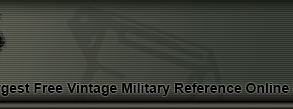WWII German Red Cross Enlisted Man Hewer -
The German Red Cross was recognized in accordance with the agreement of Geneva dated July 27th 1929. The first formal uniforms were established on August 6th 1935.
Members of the organization were allowed to wear the Enlisted man Hewer or the
Leader's dagger depending on their rank. The daggers were
introduced in 1938.
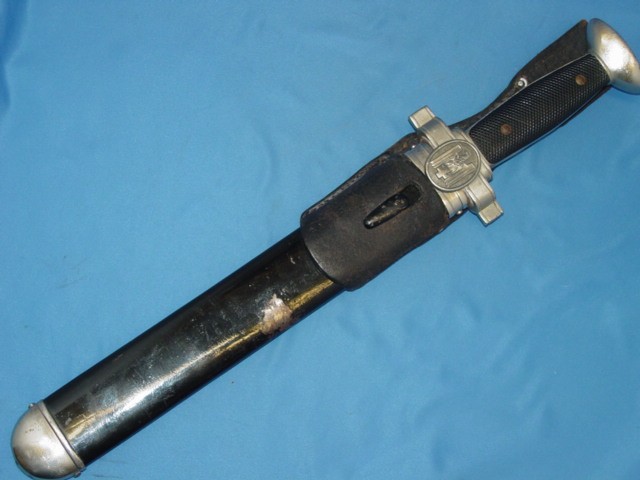
The design of the enlisted man hewer is very imposing. It is large and fairly heavy. The pommel is a silver colored
tapered oval metal. The grips are plastic, black in color and of a tightly checkered pattern on one side and completly
smooth on the other side. Two rivets are used to secured them in place.
the crossguard is of silver color. It has an oval shape with the red cross eagle at its center. The eagle is
clutching a cross and has a swastika in the chest. The back of the oval is blank.
The scabbard is of metal construction. it has a hook built near the throat. This component is where the
leather frog attaches to the dagger. The tip of the scabbard is a silver color insert. It is round in shape.
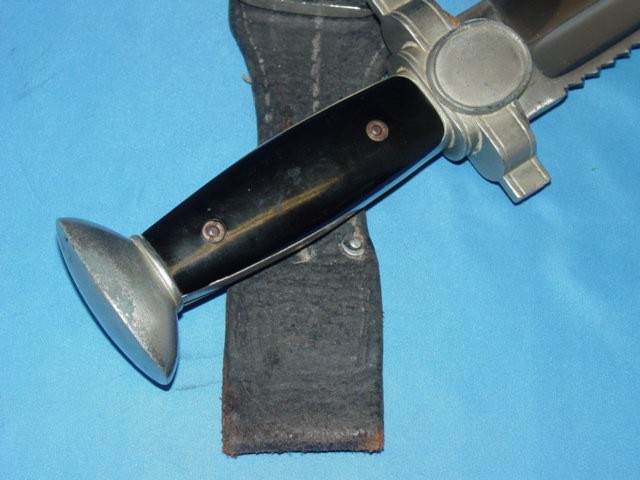
The blade is perhaps the most recognizable aspect of the red cross enlisted dagger. It has a very prominent
serration in the spine. The tip is squared off. The appearance of the blade is somehow menacing. A blood
groove covers 85% of its length.
The blade shown here does not have any manufacturing markings or logos.
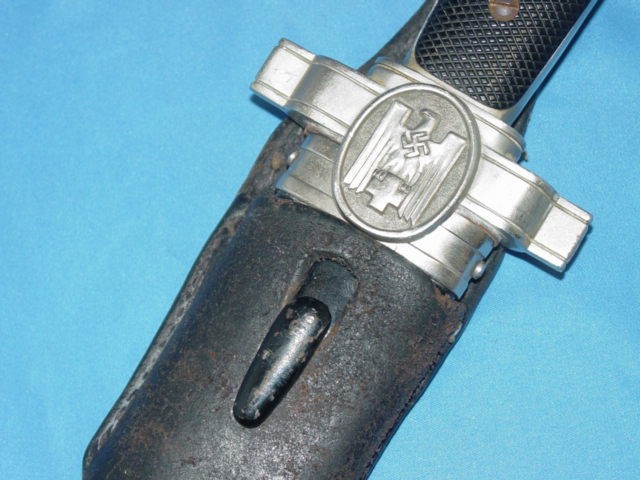
|
This page is a recognition and identification guide for German bayonets. Multiple
detailed photos of a specific sample are provided. Descriptions point out specific
points that should be noted.
One of the most commonly asked questions is "How much is my German bayonet worth?".
A price guide is included here to address this question. The value of the Nazi bayonets is
reviewed over a period of several years. A trend can be observed. The present worth
of the police sword in the collector's market is illustrated.
This service is provided free of charge to the visitor/enthusiast courtesy of
MilitaryItems.com,
a company dedicated
to the preservation of military history and to providing quality military antiques and
collectibles to museums, institutions and the general public.
|
|
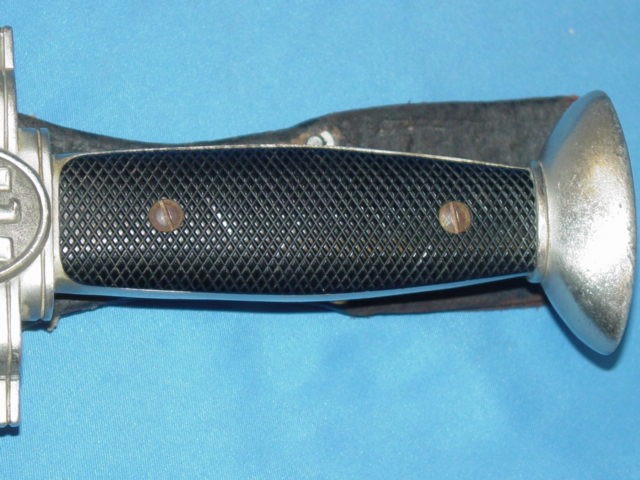
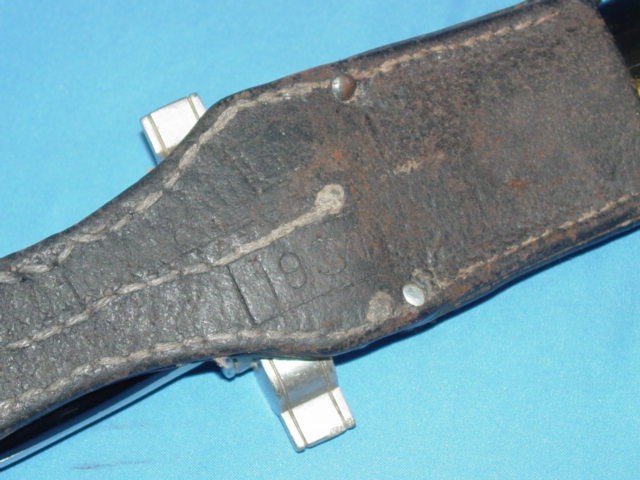
The leather frog is employed as a means to attach the dagger to the belt of the owner. The frog is of heavy duty
construction. Put together with white cotton thread and two rivets. The leather is fairly thick to provide
support. The back of the frog has some markings stamped.
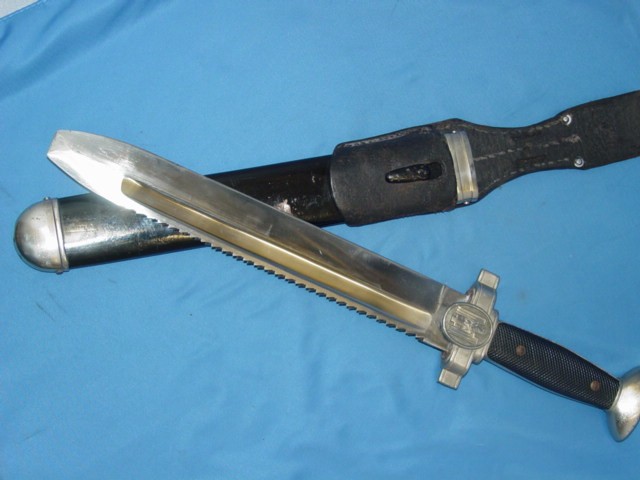
Many German edge weapons are currently
reproduced.
It is becoming more difficult to be able to tell the fake ones from the real ones because
the quality of the reproductions is improving. The collector must become familiarized with
the construction style and materials employed in the manufacturing of this item.
Attention to the details is critical in order to be able to determine the authenticity of
the collectible.
If you have an interest is seeing other edge weapons of the Third Reich, you can do so by going
to our
WWII German daggers and Swords
identification guide, Where we cover blades from the Heer (Army), Navy (Kriegsmarine), Air Force
(Luftwaffe) and other organizations.
|


